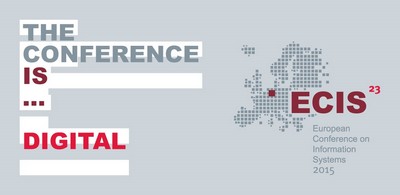DOI
10.18151/7217531
Abstract
Knowledge boundaries can constrain cross-border collaboration. Based on a qualitative case study of a distributed team, we examine which semantic knowledge boundaries recur and why they recur over the life of an agile, outsourced software project. Based on our analysis of obser-vational data, collaboration tool data and interviews, we first identify the similar recurrent boundaries and categorize them under three domains for this type of software application: As-sembling, Designing, and Intended user interaction. We then examine three practices utilizing software prototypes that team members used to bridge them. First, we find that similar semantic knowledge boundaries related to all three of the domains recur over the 10-month life of the project. Second, we find that team members repeatedly enact the same practices to bridge simi-lar knowledge boundaries over the life of the project. Our data also suggest that team members in outsourced agile software development projects will likely use practices to transcend, rather than traverse, knowledge boundaries. Based on these emergent findings, we develop three propositions for future testing. Our study therefore contributes to the growing research streams on knowledge boundaries in IS outsourcing and the usage of prototypes in agile software development.
Recommended Citation
Winkler, Maike AE; Brown, Carol; and Huber, Thomas, "Recurrent Knowledge Boundaries in Outsourced Software Projects: A Longitudinal Study" (2015). ECIS 2015 Completed Research Papers. Paper 203.
ISBN 978-3-00-050284-2
https://aisel.aisnet.org/ecis2015_cr/203


